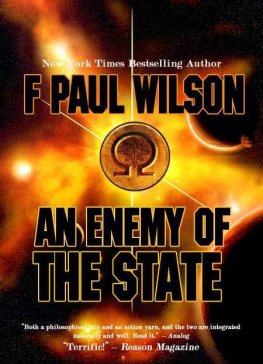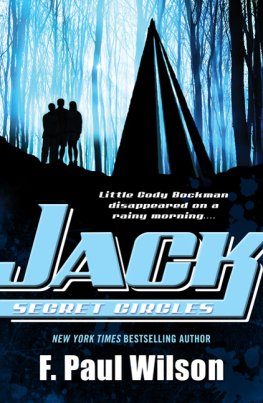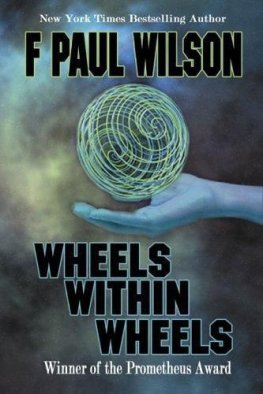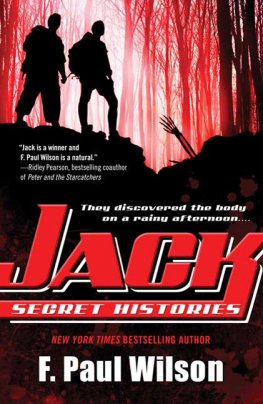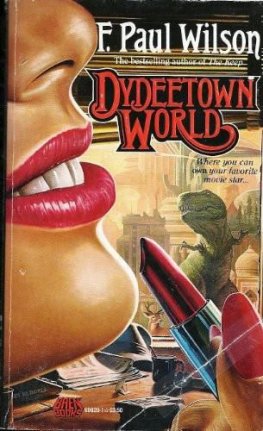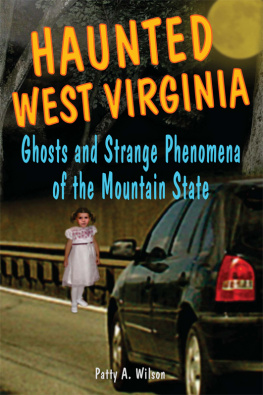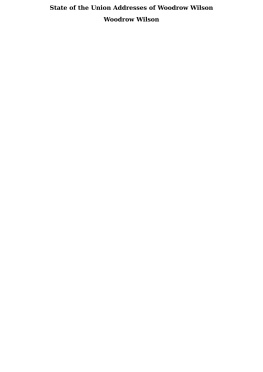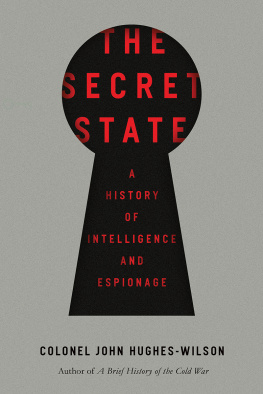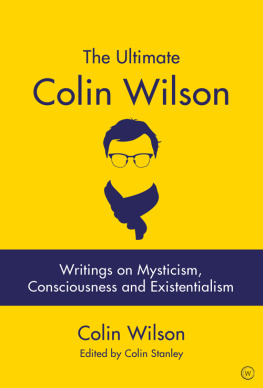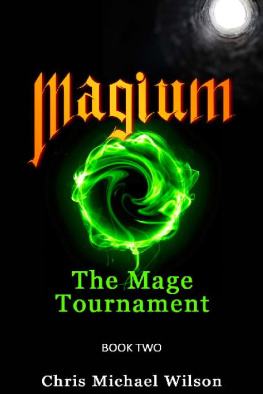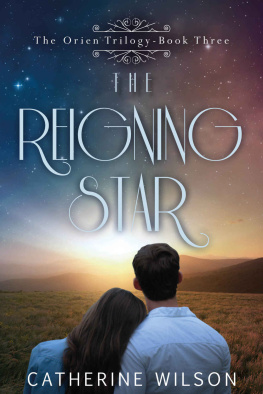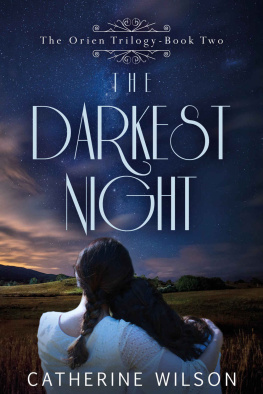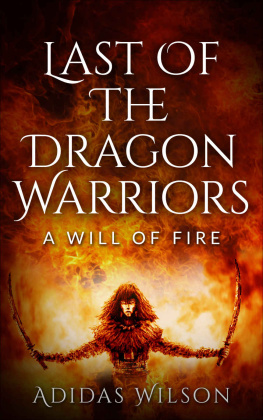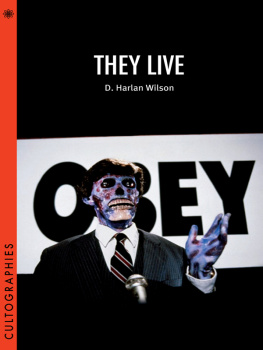F. Wilson - An enemy of the State
Here you can read online F. Wilson - An enemy of the State full text of the book (entire story) in english for free. Download pdf and epub, get meaning, cover and reviews about this ebook. genre: Science fiction. Description of the work, (preface) as well as reviews are available. Best literature library LitArk.com created for fans of good reading and offers a wide selection of genres:
Romance novel
Science fiction
Adventure
Detective
Science
History
Home and family
Prose
Art
Politics
Computer
Non-fiction
Religion
Business
Children
Humor
Choose a favorite category and find really read worthwhile books. Enjoy immersion in the world of imagination, feel the emotions of the characters or learn something new for yourself, make an fascinating discovery.
- Book:An enemy of the State
- Author:
- Genre:
- Rating:3 / 5
- Favourites:Add to favourites
- Your mark:
- 60
- 1
- 2
- 3
- 4
- 5
An enemy of the State: summary, description and annotation
We offer to read an annotation, description, summary or preface (depends on what the author of the book "An enemy of the State" wrote himself). If you haven't found the necessary information about the book — write in the comments, we will try to find it.
An enemy of the State — read online for free the complete book (whole text) full work
Below is the text of the book, divided by pages. System saving the place of the last page read, allows you to conveniently read the book "An enemy of the State" online for free, without having to search again every time where you left off. Put a bookmark, and you can go to the page where you finished reading at any time.
Font size:
Interval:
Bookmark:
F. Paul Wilson
An enemy of the State
PREFACE
The year was 1979. I had written and sold Healer and Wheels Within Wheels, both patchwork novels extrapolated and expanded from shorter works previously published in Analog. Now I was ready to write a novel from scratch. I decided to stick with the LaNague Federation future history, but this time I'd write about the roots of the Federation, about its founder, the reluctant revolutionary Peter LaNague.
I saw LaNague as a non-violent man trying to bring down a repressive government without bloodshed-or at least with very little. But how to go about that?
At the time I was pursuing a personal radicalism based on the anarchocapitalist writings of Ludwig von Mises and Murray Rothbard and others. They contend that the soul of a free society is a free economy: if individuals are not allowed to deal freely with each other, then they are not free. I became fascinated with the Weimar hyperinflation during the early 1920s (a well into which I'd dip again decades later for Aryans and Absinthe, the novella I wrote for the anthology Revelations, edited by Douglas E. Winter, 1997). I began to wonder: if a government can manipulate the economy to further its own ends, why couldn't a clever revolutionary do the same to bring down a government?
And when I realized that Peter LaNague's target and weapon could be one and the same, the story clattered into place.
All this dovetailed perfectly with my long-term disdain for that hoary SF cliche, the galactic empire. Really, even with a faster-than-light drive, the idea of an ironfisted centralized power micromanaging a collection of worlds spanning dozens of light years is absurd. My concept was a little more practical: a loose confederation of colonized worlds left pretty much to their own devices with a centralized Big Stick hanging over them to dampen any aggressive or acquisitive tendencies. In other words: Hands Off. Laissez Faire.
What a concept. It's now called libertarianism. Today there's a libertarian movement and a Libertarian Party, but back in the late sixties when I first arrived at my-for want of a better word-Weltanshauung, it didn't have a name. I spent the years 1964-68 at Georgetown University in Washington, DC. I made the marches, mixing with the gathering hordes around the Lincoln Memorial and trooping en masse across the Potomac toward the Pentagon. It was a happening, a huge party, and sure I wanted the war ended, but I was alone in that crowd, a political and philosophical orphan.
My problem was an inability to perceive much functional difference between state socialism/communism and fascism. The rhetoric was certainly different, but the result either way was central control of business, industry, media, and education, all at the expense of the individual. It didn't matter to me whether the state or the collective slipped the cuffs around my wrists, either way I was shackled.
So I struck out in a different direction, away from the Left-Right axis, and let me tell you, it was lonely out there. I turned off the Lefties with my espousal of a free-market economy (one woman at an anti-war rally cried, You've must have been frozen for a hundred years!) and Young Republican types all but held up crosses when I suggested legalizing drugs and prostitution.
From the outset I wanted my science fiction to incorporate this odd but fundamentally consistent view of the world. It felt right. Lots of SF concerns aliens, and this nameless philosophy seemed pretty damn alien to just about everyone I knew.
When I finally got around to writing An Enemy of the State, I decided to make it a manifesto of sorts. But I didn't want it to be too deadly serious, so I had some fun with the quotes that opened the chapters, using a wide array of sources ranging from Thomas Jefferson to Roger Ramjet. And when I couldn't and something that suited the mood, I fabricated a quote and attributed it to The Second Book of Kyfho (Revised Eastern Sect Edition).
Kyfho is my word (an anagram that's explained in the novel) but it seems to have taken on a life of its own. A moment ago I did a Google search for the word and got 187 hits. I've seen a Kyfho license plate; newsgroup participants have incorporated quotes from The Second Book of Kyfho into their signature files; I've had readers contact me asking me where they can buy a copy of the book (sorry, you can't); someone wrote and suggested that I should write the book and sell it, and if I didn't have time, he'd do it for me (sorry, you can't).
A number of people wrote to tell me that An Enemy of the State changed their lives. Now that's scary. If you change someone's life, aren't you responsible for what they do with it?
An even more unsettling result of the success of An Enemy of the State was that I began to hear myself referred to as that libertarian sci-fi writer. Not wanting to be stuck in that or any other pigeonhole, I decided to take a vacation from SF. My next novel was The Keep, but that's a whole other story.
The original 1980 hardcover edition of An Enemy of the State, when you can find one, goes for a hefty price these days. Stealth Press remedied the availability situation in 2001 with handsome hardcover re-issues of both An Enemy of the State and Healer, the just-as-rare third book of the LaNague series. Now copies of these two hardcover books are difficult to come by and Stealth never got around to re-publishing the second LaNague novel, Wheels Within Wheels, at all. Infrapress is now publishing new complimentary editions of all three books for the first time. Each volume also contains LaNague-associated short fiction, too.
As in the Stealth edition, An Enemy of the State includes LaNague lagniappe-Ratman (Analog, August 1971), my first professional sale and the very first LaNague Federation story (so please excuse the humongous pre-microchip computers); plus Lipidleggin (Asimov's SF Magazine, May-June 1978), featuring the ancestor Peter LaNague is trying to trace in Chapter Eight of this novel.
F. Paul Wilson
The Jersey Shore
September 2005
It appears there will always be unanswered questions about the Great Conspiracy, especially since its chief engineer, Peter LaNague, was not available afterward for questioning. The remarkable depth of his conspiracy's penetration into the fabric of Imperial society left many traceable elements in its wake, and so we have a reasonably clear picture of events during the five-year pre-insurrection period.
But what preceded the conspiracy itself? What started it all? What made Peter LaNague decide that the time was ripe for revolution? Scholars diverge at this point, but the single-incident theory appears to be coming into favor in recent texts. The arrival of LaNague on Throne and the cessation of attempts to assassinate Metep VII follow closely on the heels of a small anti-militia riot on Neeka. There was one fatality in that riot-a young woman named Liza Kirowicz. But Kirowicz was her married name. Her maiden name was Boedekker. And there's the rub
from LANAGUE: A BIOGRAPHY by Emmerz Fent
PROLOGUE
And I say we've had just about enough!
Liza Kirowicz was in the front row with her husband, cheering, stamping her feet, and shouting with the rest of them. There were about two hundred angry people packed into the hall; the air was hot and reeked of sweat, but no one seemed to take much notice. All were tightly enmeshed in the speaker's word-web.
It's been well over two standard centuries since we kicked the Earthie militia back to Sol System. They were sucking us dry, taking what we produced and shipping it back to Earth. So our great-great-grandparents revolted and set up the Imperium, supposedly to keep us free. But look at us now: are we any better off? The Imperium has been taxing us since it was formed; and if that wasn't bad enough, it later came around and said Neekan currency was no good-we'd have to pay in Imperial marks. Now, instead of Earthie militia, we have the Imperial Guard all over the planet, to protect us from any possible countermoves by Earth! They must think we're all idiots! The Imperial Guard is here for one reason: to make sure we pay our taxes, and to make sure those taxes go into Metep's coffers on Throne! That's why they're here! And I for one have had enough of it!
Font size:
Interval:
Bookmark:
Similar books «An enemy of the State»
Look at similar books to An enemy of the State. We have selected literature similar in name and meaning in the hope of providing readers with more options to find new, interesting, not yet read works.
Discussion, reviews of the book An enemy of the State and just readers' own opinions. Leave your comments, write what you think about the work, its meaning or the main characters. Specify what exactly you liked and what you didn't like, and why you think so.

